ASRA Past Recipients

Crafting Fine Press

Exploring Book 91 (The String Book)
What is a book without text or illustration? What does it mean if a book requires its reader to look beyond its pages to fully understand it? These are the sort of questions I aim to explore in my research of Keith Smith's Book 91 (A String Book). Book 91 is an artists’ book that features multiple strings that weave their way through varying holes on each of its bare pages. This colorless, imageless, and textless book explores the boundaries of the artists’ book as concept and form. Keith Smith gained inspiration from painters that eliminated subject matter to create non-representational paintings. Following suit, Smith worked with all the elements of bookmaking but focused on the movement, cast light and shadows, sound, sequence, and materials rather than the subject matter. For my research, I will conduct an extensive visual analysis of Book 91 by using slow-looking strategies to interpret and respond to the content of the book. My initial hope for my research is to explore how this artists’ book is observed and interacted with by its viewer. Due to the book's unique qualities, and the absence of text and imagery, the experience of this book is unlike that of a book with the traditional format. Throughout my research, I will consider the overall performance aspect that is crucial to the book-viewing experience, how the absence of words can illuminate visual opportunities, and potential ways in which librarians can document books of this nature within digital systems. Toward the end of my research, I will conduct a ‘mini exhibition’ in which I will discuss and perform the book for an audience.
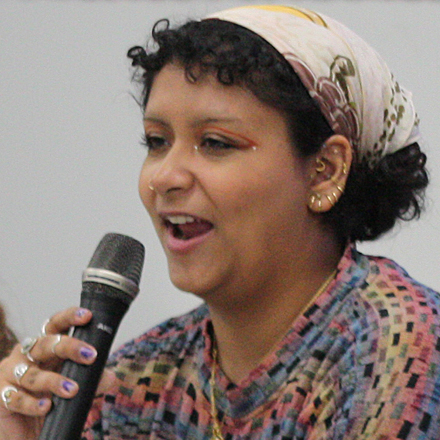
Kirchner in America: Building a Legacy through the 1969 Exhibit
Donald E. Gordon (1931-1984) was a German Expressionist art historian and professor at the University of Pittsburgh. During his career, he published several books and essays about modern art and expressionism, especially regarding Ernst Ludwig Kirchner. Along with Thomas Maythem of the Boston Fine Arts Museum and James Demetrion of the Pasadena Art Museum (now the Norton Simon Museum), Gordon was the main advocate and planner for a 1968-1969 exhibition of Kirchner’s artwork - the first touring exhibit of his work in the United States. With the financial support of the German government, the over 100 artworks displayed made a significant impact with art critics, cultural connoisseurs, and the public. But how did this exhibit build Kirchner’s, and more broadly German Expressionism’s, reputation in America? Involving one of the trailblazers in German Expressionism - Gordon - in the development of the Kirchner exhibit was undoubtedly a wise choice. By having a forward-facing academic figure as one of the main proponents of the exhibit, the public is more likely to have a positive reaction to it. Moreover, the selection of Kirchner over other German artists is a tempting choice, especially for the German government. Since Kirchner passed away before the start of World War II, he is “innocent” from the negative perception that Americans had of Germany. Combining Kirchner’s distance from the war, Gordon’s expertise in the field, and an eccentric yet influential selection of museums for the exhibit, a star - Kirchner - was born in America.
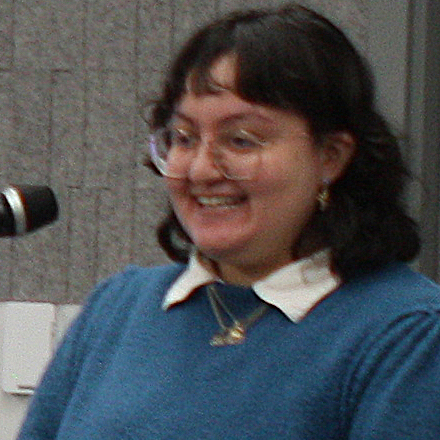
¿Dónde Estamos?: Identifying Sexual Expressions and Queer Identities in Latinx Communities
The representation of marginalized communities in academic spaces is scarce. Through the Archives & Special Collections, this research strives to identify and explore representations and expressions of sexuality and queerness in Latinx communities. My research appreciates the importance of growing awareness of underrepresented communities and tries to amplify forgotten voices from the past. To encompass as many marginalized communities as possible within the Latinx diaspora, I had the liberty to reference all kinds of materials to encapsulate their voices and identities. Throughout this research, the underground feminist and gay press was frequently utilized. Though erotica, cartoneras, and public health newspapers were also frequently reviewed. Voices of diverse backgrounds were found to express their struggles with being queer, meeting sexual expectations, differences between identification and sexual practice, a deadly fight with AIDS, and much more. A limitation encountered during this research was the lack of representation of Latino sexual expression who did not identify as queer. Those who practice heterosexuality might not be seen as a marginalized community, but those who do not identify as White American have a different experience with being straight. With hopes of delivering a cartonera and putting forward a library guide, this research will present and give space to an underrepresented community to discuss their experience with sexuality and queerness to identify their space in history.
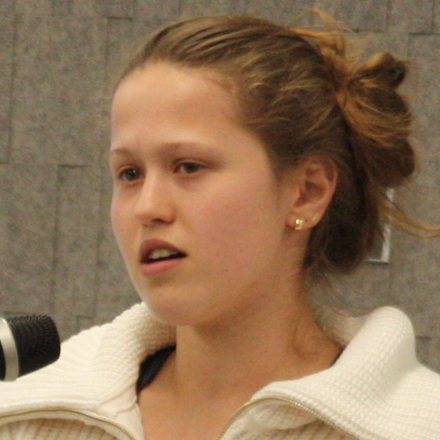
Ralph Adam Cram and East Liberty
Over the course of the semester, I have been researching the architect Ralph Adam Cram, the Mellon family, their coming together to create East Liberty Presbyterian church and its effect on the Pittsburgh neighborhood of East Liberty.
The initial goal of this project was to prove that Cram considered this church his proudest work because it aligned with his ideological views of what a utopian society should look like. It very quickly became clear that this would be difficult to prove; there was little specifically about Cram in our university archives, and the deliverable library portion of my work was to create a LibGuide that organized and streamlined the materials that we did possess. With this in mind, I started to look at newspaper clippings, and social work reports from East Liberty to see how the neighborhood changed over the century in which the church was built: how life looked before the church versus after.
While I hope to still be able to explore more correspondences between the architect and the Mellon family, it has been interesting to see the efforts that the church has made and continues to make to be a trailblazer in the community. It seems to have always been intentionally inclusive of marginalized communities, and conscious of addressing the needs of the neighborhood as they changed and developed and in this, stayed true to Crams’ ideals.
As I complete the conference paper, that is my other deliverable, I hope to continue looking at the Mellon family and more primary sources from Cram. Looking at the Mellons, at the inconsistencies between how they presented themselves, how the community saw them, and the outcomes of the architectural projects they sponsored seems like another step towards understanding all the players that were a part of the church’s construction. This in turn will solidify our knowledge and understanding of the importance and intention of this monumental building as it stands in a historically turbulent and fascinating Pittsburgh neighborhood.

From Galileo to Glass Ceiling Breakers: How Astrology’s Uses Evolved from the Early Modern Period to the 20th Century
Astrology is not a new practice. In fact, the Western astrology investigated in this project has its origins with the Babylonians around 1500 BCE. The study of the stars and the possible impact they have on human behavior is laborious and controversial. The Hillman Library Special Collections is where I stumbled upon many maps, books, and pamphlets from the Early Modern era detailing personal uses of astrology. These sources are from figures such as Galileo, William Lilly, and Dr. John Case. These men set down the foundation for the practice and attitude of modern Western astrology by creating guides for the everyday person to calculate their fates. I was later directed to the Judge Eunice Ross collection, which is currently being processed at the Archives at Thomas Boulevard. Judge Ross was a legal trailblazer, Pitt alum, and avid user of astrology. Most of my findings draw from her diaries, where she detailed events that occurred throughout her day, and correlated them to what was happening in the sky that day (and night).
With both collections at my disposal, I decided to investigate and compare the way prominent people used astrology in their daily lives in both time periods. The project seeks to create connections between people hundreds of years apart. Overall, the most prominent theme is that people have used (and arguably still use) the art and study of the stars to create a sense of control and predictability in their lives. My deliverables investigate this theme and the people who created these sources on a more in-depth scale.

The Evolution and Rhetoric of Sexual Harassment Policies at the University of Pittsburgh
: Policies governing sexual harassment on college campuses are a recurring topic of national attention and concern. The #MeToo movement led to public discussion and critique of policies and procedures for handling sexual harassment at institutions of higher education, which led to action in several cases. The University of Pittsburgh became the site of one investigation after a blog post was released critiquing the university’s handling of faculty sexual harassment claims. My research explores the rhetoric and evolution of sexual harassment policy and procedure at the University of Pittsburgh through analysis of the cultural contexts surrounding sexual harassment policy changes. I have been able to explore cultural contexts through both paper archival records and web archives. Through paper archival records, I have had the chance to look at administrative files from relevant offices, internal correspondences between faculty, staff, and those affiliated with the university, and external correspondences with the university community and general public. Through web archives, I have been able to look at relevant news stories and track public discussion of issues concerning sexual harassment, the University of Pittsburgh, policy and procedural change, and the intersection of those conversations.

Transcribing and Translating Latin Annotations in Federico Commandino's 1572 Edition of Euclid's "Elements"
This research is focused on the Latin annotations made in the 1572 edition of Euclid’s Elements. By transcribing and translating these annotations, this edition is made a more accessible archival resource and shows how contemporary readers utilized this edition. This edition of Elements was translated by Federico Commandino, a noted scholar of his time, and it was the most popular edition of its time. The annotations in this manuscript were made by Johannis Gabrielis and they include comments, corrections, and mathematical cross-references to the text. There is not much known about Gabrielis, but these annotations make it clear that he had mathematical skill and a knowledge of Euclidean geometry. This project focuses on describing what Gabrielis references in the Euclidean text as well as any external resources he may have been using. For example, through my research it has become clear that Gabrielis was referencing Franciso Flussate Candalla’s 1566 edition of Elements in his annotations. The annotations in this manuscript extend all the way through Book XI of thirteen, though most of them stop around Book VIII. All these annotations have been at least catalogued. As this project continues, it becomes easier to identify Gabrielis’ style and orthography in the annotations, and therefore translating and contextualizing them also becomes much easier. Future research possibilities for this manuscript include further translation of Gabrielis’ annotations and the creation of a scholarly apparatus keyed to the text. An apparatus such as this would put together the manuscript and the research done on it thus far into one accessible resource.
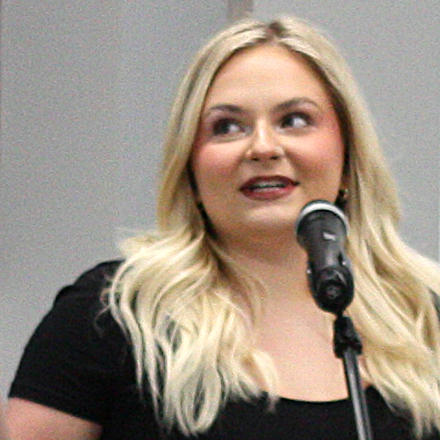
Rhetoric Around Women in Public and Private Affairs Advertised to Women in Late Nineteenth Century in Popular American Periodicals
Averie’s research began in a previous English Literature Seminar class where she examined the portrayal of women involved in public affairs through the 1852 novel Bleak House by Charles Dickens, with the help of her professor Amy Murray Twyning. In her final paper for the seminar, Averie examined primary sources from nineteenth-century British publications, and their significance to the domestic and public placements of women in societal and familial dynamics. This prior research in fictional representations of women and primary sources sparked an interest in how other publications, specifically those advertised to women, molded ideas concerning the private and public spheres in the nineteenth century. Her ASRA research utilizes a variety of early publications of the popular women's magazine Harper’s Bazar (later changed to Harper’s Bazaar), collected from the Special Collections. Averie’s research was conducted by analyzing seemingly encouraging rhetoric about women’s affairs in public life and digging out the underlying themes and conditions this progress was advertised with. Not only does this research illustrate where women stood in relation to the public sphere, but how they were encouraged to act, look, as well as see the world. Opinion pieces, advertisements, fashion columns, and news all contain rhetoric that can be analyzed in relation to how women were expected to fit into society, which still resonates with gender norms today. The research Averie conducted using the Hillman Archives will assist her in her final semester at the University of Pittsburgh while she utilizes her knowledge to complete a senior thesis.
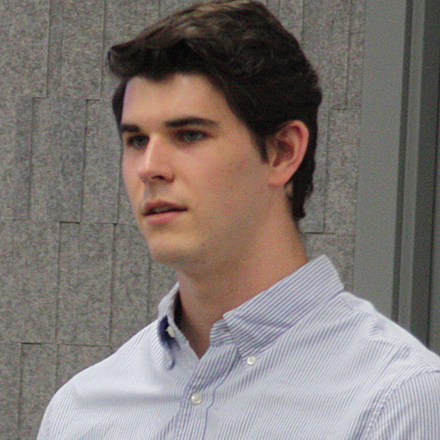
Balancing Physician Autonomy and Oversight: A Case Study of Dr. Thomas E Starzl and the Development of Organ Transplant
The Starzl archive is a collection of the correspondence and life’s work of Dr. Thomas E Starzl, the father of modern organ transplantation; this archive provides unique insight into the medical ethics involved in developing experimental kidney and liver transplant protocols beginning in the late 1950s. In the beginning of Dr. Starzl’s transplant practice, ethical oversight committees were in their early stages, so physicians were primarily responsible for ensuring the proper treatment of human subjects in experimental trials. This is distinct from the process research follows today, in which researchers are required to receive direct written approval from the institutional review boards (IRB) before proceeding with their experimental trials. As Starzl developed his protocols for transplant and tested anti-rejection drugs to prevent graft rejection, the IRB developed concurrently. Suddenly in the late 1970s, Dr. Starzl found himself in contention with the IRB, as his notion of tolerable risk differed greatly from the IRB’s conception. In one set of correspondence with the FDA and IRB, Dr. Starzl reveals his propensity to follow his own judgement despite the accepted guidelines to treat patients with no alternative options - his breach in protocol prompted an FDA investigation of his clinical practice.
Specifically, the issue the FDA investigated involved his requests for compassionate use of the experimental anti-rejection drug OKT3 in organs of patients who failed conventional therapies, at high risk for rejection. Although OKT3 later became the first monoclonal antibody approved for human use in 1986, at the time of the correspondence 1984-1986 with IRB and subsequent FDA investigation in 1986, OKT3 was an experimental compound. This case study provides excellent context for a discussion into the degree of autonomy we grant physicians to make ethical decisions in compassionate use cases, and what amount of oversight is necessary to protect patients. Although this case is historical, we may be able to draw many modern parallels between Dr. Starzl’s compassionate use requests and patient groups suffering from diseases with poor prognoses and only experimental drugs options. I plan to write and publish a research paper on the medical ethics involved in compassionate use cases and the IRB oversight of physicians.

Honoring Mortality: An Overview of the Cologne Office of the Dead
In recent history, the concept of death and dying has become an extremely uncomfortable topic of discussion for a majority of the population, however, in the past such discomfort was not nearly as commonplace. Throughout the Middle Ages and the Renaissance, the subject of death was unavoidable, and to the faithful all across Europe, having a proper death described by the rules of the Christian faith was of utmost importance. With everyone hoping to one day go to Heaven, manuscripts such as the Cologne Office of the Dead were created, intended to guide monks and other religious figures in prayer for the deceased and set them on route to their preferred afterlife. Originally created in 1487 and used for services until 1802, the Office of the Dead utilized in this project gives us a glimpse into how death and mortality was viewed by the most faithful of European society. In my research, I examined how focusing on the way in which such a manuscript was created can craft a narrative for modern day scholars to understand that death was by no means a taboo subject in earlier history. Like many manuscripts, the Cologne Office of the Dead is written entirely in Latin, and to combat this challenge, I took to looking at details such as the materials and methods used to create it, as well as the clear evidence of handling as the main focal point of my project. In doing so, I aimed to paint a clearer picture of the importance that death and dying held in early European society, and shed light on a topic that is often avoided in the modern era.
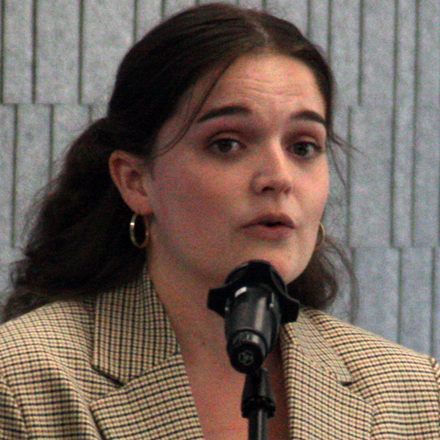
The Public Perception of Medicine: A Comparative Analysis of the National Receptions of the 1955 Invention of the Polio Vaccine and the 2020 Invention of the COVID-19 Vaccine
The University of Pittsburgh’s Archive and Special Collections department recently acquired a large collection of Jonas Salk papers, dating from 1943 to 1995. This assortment of personal effects from the creator of the Polio vaccine himself, allowed for the question of “How have vaccines historically been received by the public?” to be explored. This question quickly evolved into a comparative analysis between the reception of the 1955 invention of the Polio vaccine with the more recent invention of the COVID-19 vaccine. By gathering newspaper clippings for the opinions on the Polio vaccine, and Twitter data for the opinions on the COVD-19 vaccine, comparative word maps and conclusions were made on the general public's opinion regarding the necessity of vaccines, how vaccines should be produced, and who should be getting them. Though less than 100 years separate these two major medical milestones, the public’s perception of them vary greatly. The Polio portion of this project is accompanied with an ArcGIS StoryMap, where viewers have an accessible and interactive layout of how vaccine trials were held and how the public was reacting to them. The COVID-19 portion consists of datasets from the National Library of Medicine and word maps that express public opinion. Together, the viewpoints on vaccine creation can be better understood.




